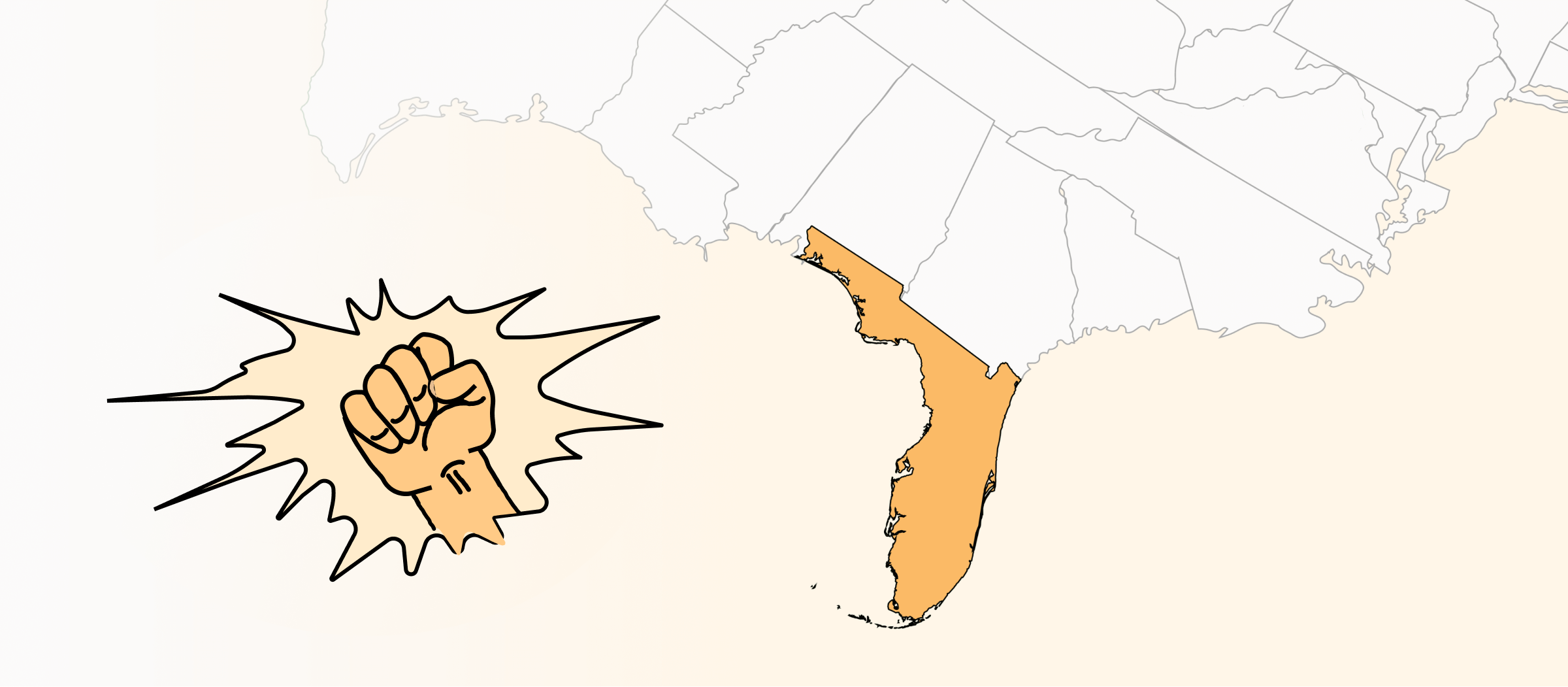| Tenant Protected Actions |
|
| Landlord Retaliatory Actions |
|
| Penalties for Retaliation |
|
When Is It Illegal for Landlords to Retaliate in Florida?
It’s illegal for Florida landlords to retaliate with raised rent, reduced services, or threatened eviction or lawsuit against tenants who have taken any of the following protected actions in good faith:
- Complaining to the landlord or government about failure to maintain the property.
- Participating in a tenant organization.
- Pursuing rights or remedies given by law or lease.
- Taking other similar actions.
What Can Tenants Do in Response in Florida?
If a landlord retaliates in Florida, the tenant can respond by suing for quiet enjoyment of the property. The tenant might end the rental agreement, and regardless, can recover court costs and attorney fees, plus expenses associated with the retaliation.
Sources
- 1 Fla. Stat. § 83.64(1) (2022)
-
“It is unlawful for a landlord to discriminatorily increase a tenant’s rent or decrease services to a tenant, or to bring or threaten to bring an action for possession or other civil action, primarily because the landlord is retaliating against the tenant. In order for the tenant to raise the defense of retaliatory conduct, the tenant must have acted in good faith.”
Source Link - 2 Fla. Stat. § 83.64(1)(a) - (f) (2022)
-
“Examples of conduct for which the landlord may not retaliate include, but are not limited to, situations where: (a) The tenant has complained to a governmental agency charged with responsibility for enforcement of a building, housing, or health code of a suspected violation applicable to the premises; (b) The tenant has organized, encouraged, or participated in a tenant organization; (c) The tenant has complained to the landlord pursuant to s. 83.56(1); (d) The tenant is a servicemember who has terminated a rental agreement pursuant to s. 83.682; (e) The tenant has paid rent to a condominium, cooperative, or homeowners’ association after demand from the association in order to pay the landlord’s obligation to the association; or (f) The tenant has exercised his or her rights under local, state, or federal fair housing laws.”
Source Link - 3 Floyd v. City of Sanibel, No. 2:15-cv-00795-SPC-CM, 15 (M.D. Fla. 2017)
-
“Plaintiffs aver that CHR, as the City’s agent, threatened to evict the Floyds in retaliation… The City does not assert that the Floyds acted in bad faith. Therefore, the Court finds that the Plaintiffs stated a viable claim for retaliation pursuant to § 83.64(1).” (In other words, good faith is presumed unless disputed as a factual issue.) Floyd v. City of Sanibel, No. 2:15-cv-00795-SPC-CM, 15 (M.D. Fla. 2017). See also Perkins v. Nat’l Credit Sys., Inc., No. 8:18-cv-806-T-26CPT, 5 (M.D. Fla. Aug. 16, 2018) (“Threatening eviction in retaliation for complaints, absent bad faith on the part of the tenants, states a viable claim.”)
Source Link - 4 Fla. Stat. § 83.55 (2022)
-
“If either the landlord or the tenant fails to comply with the requirements of the rental agreement or this part, the aggrieved party may recover the damages caused by the noncompliance.”
Source Link - 5 Fla. Stat. § 83.54 (2022)
-
“Any right or duty declared in this part is enforceable by civil action. A right or duty enforced by civil action under this section does not preclude prosecution for a criminal offense related to the lease or leased property.”
Source Link - 6 Fla. Stat. § 83.56(1) (2022)
-
“If the landlord materially fails to comply with s. 83.51(1) or material provisions of the rental agreement within 7 days after delivery of written notice by the tenant specifying the noncompliance and indicating the intention of the tenant to terminate the rental agreement by reason thereof, the tenant may terminate the rental agreement. If the failure to comply with s. 83.51(1) or material provisions of the rental agreement is due to causes beyond the control of the landlord and the landlord has made and continues to make every reasonable effort to correct the failure to comply, the rental agreement may be terminated or altered by the parties.”
Source Link - 7 Fla. Stat. § 83.48 (2022)
-
“In any civil action brought to enforce the provisions of the rental agreement or this part, the party in whose favor a judgment or decree has been rendered may recover reasonable attorney fees and court costs from the nonprevailing party. The right to attorney fees in this section may not be waived in a lease agreement. However, attorney fees may not be awarded under this section in a claim for personal injury damages based on a breach of duty under s. 83.51.”
Source Link

